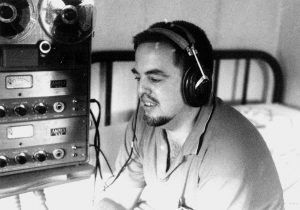Muddy Waters
McKinley Morganfield, born in 1915 in Rolling Fork, nicknamed Muddy Waters since he was a child, has always been considered the father of the Chicago blues.
He was one of the greatest bluesmen of all time and one of the most influential artists of the twentieth century. Singer and guitarist, Muddy Waters, who would bring the blues to the north by joining the mass exodus of blacks from the south in the 40s and 50s, was a promoter of the explosion of British beat music of the sixties and a point of reference for groups like Rolling Stones and Yardbirds.
Life
Muddy, an orphan at the age of three, went to live with his grandmother in Clarksdale, where at the age of nine he learned to play the harmonica and at sixteen the guitar. It was, in fact, the grandmother who gave him the nickname Muddy Waters (muddy waters), due to his habit of wallowing in the mud on the banks of the Mississippi.
Like most blacks in the South, Muddy worked as a collector in the white cotton fields and, after a series of live performances in a juke joint, decided to try his luck in Chicago where the blues was spreading. He soon found a contract with Chess, the record company that would later buy bluesmen like Little Water, Howlin ’Wolf and Chuck Berry. Muddy made his first recording for folk expert Alan Lomax, for whom ” He began to record blues grooves that would literally make the history of pop music“.

Alan Lomax was the first to record Muddy Waters, influencing later bands like Led Zeppelin and Rolling Stones. Even Mick Jagger took the name of Rolling Stones from a verse engraved by Muddy Waters on Sherrod’ s plantations in those days long gone.
Style
From a stylistic point of view, Muddy has never shown any uncertainty in his performances. He sang and played with such finesse, with such a subtle and changeable harmony between the voice and the guitar, and expressed so much of that tenderness in the way he spoke the words, which exceeded all his predecessors – Blind Lemon, Charley Patton, Robert Johnson, Son House, Willie Brown.
His songs were something more than the blues: They were songs of love from the South, sweetly erotic and sentimental. When they were recorded to be put on the market and imitated by the rock stars, they revolutionized the music industry. Muddy’s song moved away from the rigid AAB scheme adopted by most of his contemporaries. Muddy instead used variants of the four-section ballad scheme, ABAB, using a syncopated pattern to transform four verses into eight. In two hyperbolic stanzas, he gave a measure of his pain, clearly established the main source of the blues: sexual frustration; practically all his compositions have to do with this theme. For him, even the magic of black music was a way to dominate women. His force of persuasion gave depth to the new sentimental pop-blues style that made his fortune. Over the years, Muddy put together a group of famous musicians who played and made the choir that he kept united and stable. But in the whirlwind of the Chicago musical world so much stability was unusual. He succeeded thanks to his ability to manage human relationships.
Orchestra
The poetry expressed by Muddy’s orchestra was given by the combination of the many voices of stringed instruments, wind instruments and percussion: the harmonica, glued to the microphone, moaning and howling anger and anguish; Muddy’s rhythm guitar and lead guitar, which mourned his pain; the battery, with its heavy and regular upbeat beat and with snares and plates that rustled and exploded in counter-time; the double bass, which Willie Dixon had turned into an intoned zither; finally from the grand piano of Otis Span, which filled all the holes with a floating boogie. Playing in the crowded rooms, to be heard you had to play loud, with all your energy, because, faithful to the black tradition, everyone present felt free to cackle, laugh, fight, dance. To solve this problem, Muddy had to change his style.
Thus he began to build a stronger and more compact sound in the blues. Soon an amplified harmonica reached him in the middle of the stage; Muddy was happy because the harmonica had been his first instrument and he was even happier when he joined the Little Walter group. So Muddy to adapt to this “great sound”, modified not only his way of singing but also the image of the blues.
Despite having acquired wealth and world fame, Muddy remained a serious musician, deeply tied to the aesthetics of the blues and endowed with an unshakable loyalty to the blues masters from whom he had learned his art.
#muddywaters #blues #chicagoblues
